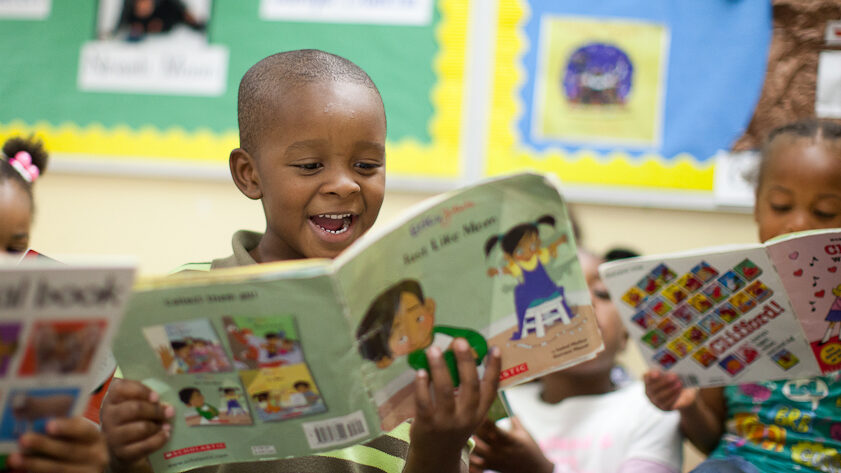
- This event has passed.
Early Grade Retention: A Conversation About the Potential Benefits and Risks

“Research also shows that Black, Latino, native students and students from low-income backgrounds are more likely to be retained, and these students are less likely to have consistent access to learning resources and opportunities. We have studies that show that retaining students is correlated with negative social, emotional and academic outcomes over time. In particular, we’re looking at things like students who repeat a grade are more likely to experience bullying or be a bully themselves.”
-Kristen Hengtgen, Ph.D. Education Trust
In this GLR Learning Tuesdays Learning Loss Recovery Challenge webinar, CGLR hosted a conversation with data experts from several exemplary research institutions. These organizations have released data reports on early grade retention, representing a range of views on the practice as well as a national scan of Pre-K – Grade 3 early learning policies. Our moderator Nyshawana Francis-Taylor, Ed.D., of The School District of Philadelphia brought her perspective as an administrator, educator and mother to our panel of research and policy leaders.
David Griffith of the Thomas B. Fordham Institute shared the findings of a recent report that questions the long-held notion that retention has negative impacts for young kids. The Fordham brief looked at two decades of research and found that in some cases early grade retention has positive lasting impacts into middle school. Griffith comments about the new brief: “I think the reason we call it ‘Think Again’ is that people should reconsider. There’s real evidence that this can help kids.”
Casey Sullivan Taylor, Ed.S., with ExcelinEd shared examples of positive impacts of retention policies in states and stressed the importance of a comprehensive set of supports and interventions to address early learning for students who are not meeting benchmarks. Sullivan Taylor highlighted the work in Mississippi as an exemplar model.
Kristin Hengtgen, Ph.D., with Education Trust brought an opposing view and shared the results of the research conducted by Ed Trust that calls out the disproportionate retention rates for children of color and lower-socioeconomic status. Hengtgen noted multiple risks including bullying, lower self-esteem, reduced sense of belonging and lack of access to high-quality supports for many students.
Adrienne Fischer with The Education Commission of the States provided a national overview of the current state policies relating to early literacy. She shared that many states are looking to align early center-based care; pre-K; Head Start; and Family, Friend and Neighbor care supports to prepare more children for kindergarten and hopefully reduce the need for retention in later grades.
What remains clear as Casey Sullivan Taylor notes below is that regardless of policies that mandate retention, teacher preparedness, high-quality curriculum for all students and more intensive supports for struggling readers is fundamental to addressing learning recovery.
“I like to be sure and highlight the fact that where we’re seeing this positive outcome around retention is in the early grades, and it’s also part of a larger, comprehensive early literacy package approach. So, the policy isn’t just about retention alone. It’s really much more about focusing on a preventative model so that we have supports for kids beginning in kindergarten and supporting them all the way through to third grade. So we hopefully intervene in a meaningful way and support them to a point that they won’t need the retention year.” -Casey Sullivan Taylor, Ed.S., ExcelinEd
Panel







